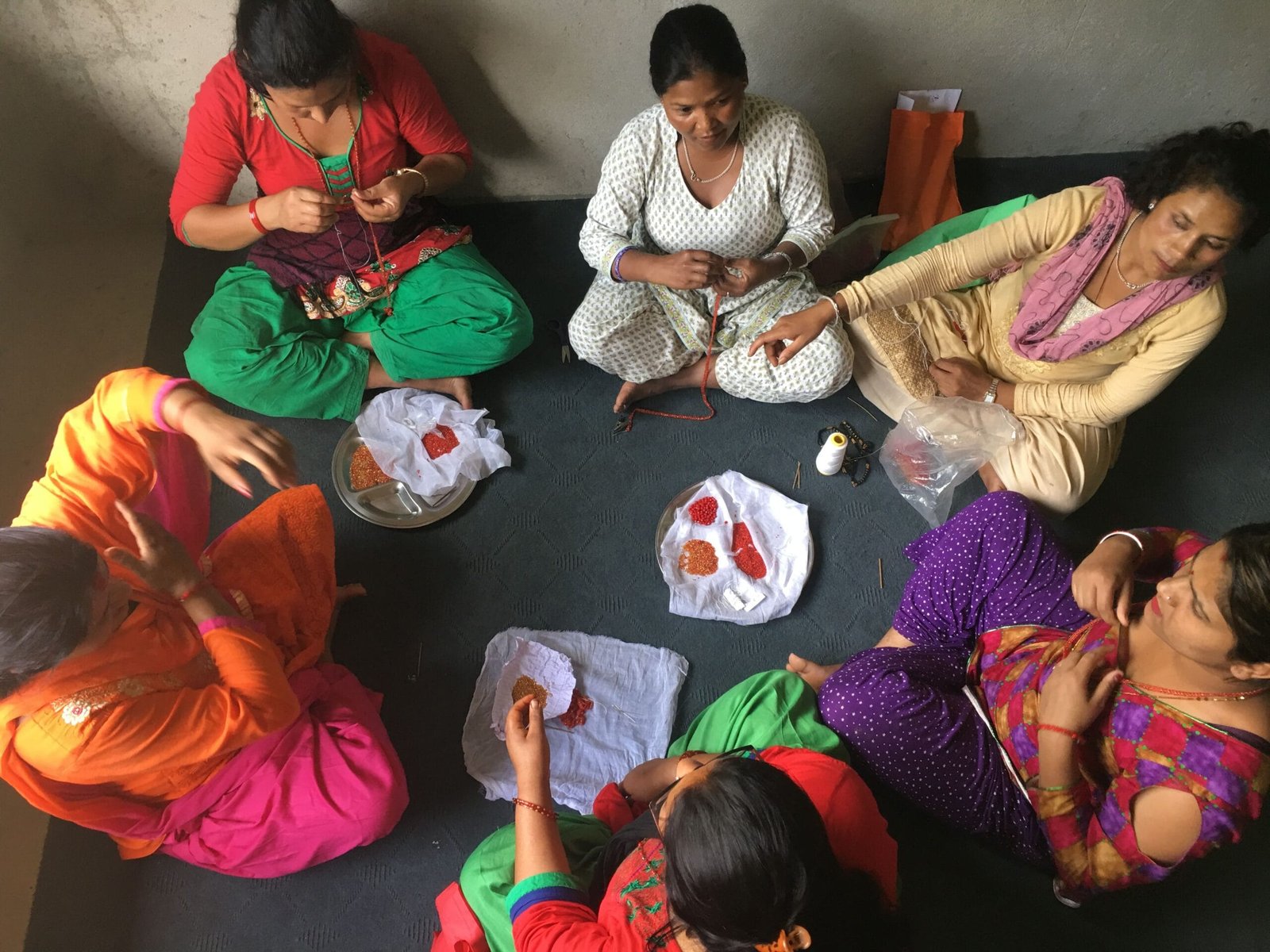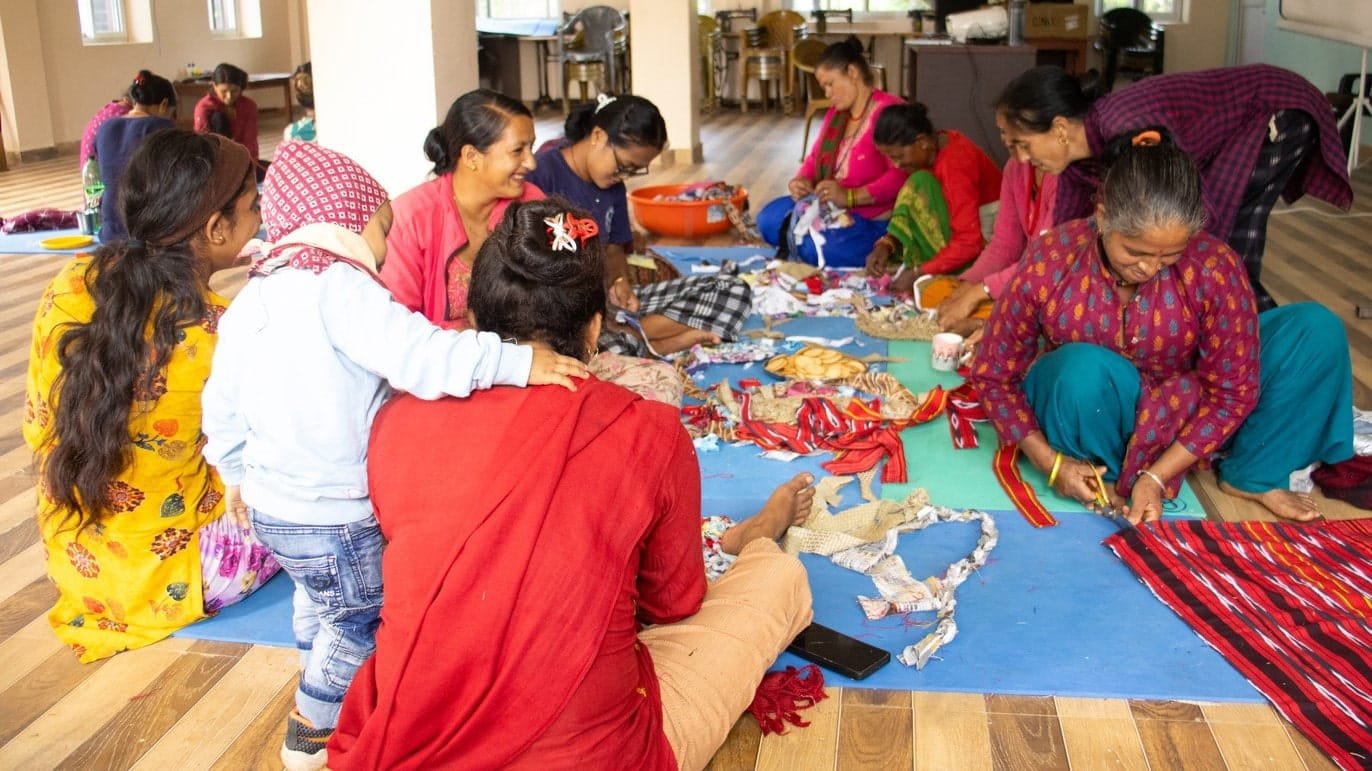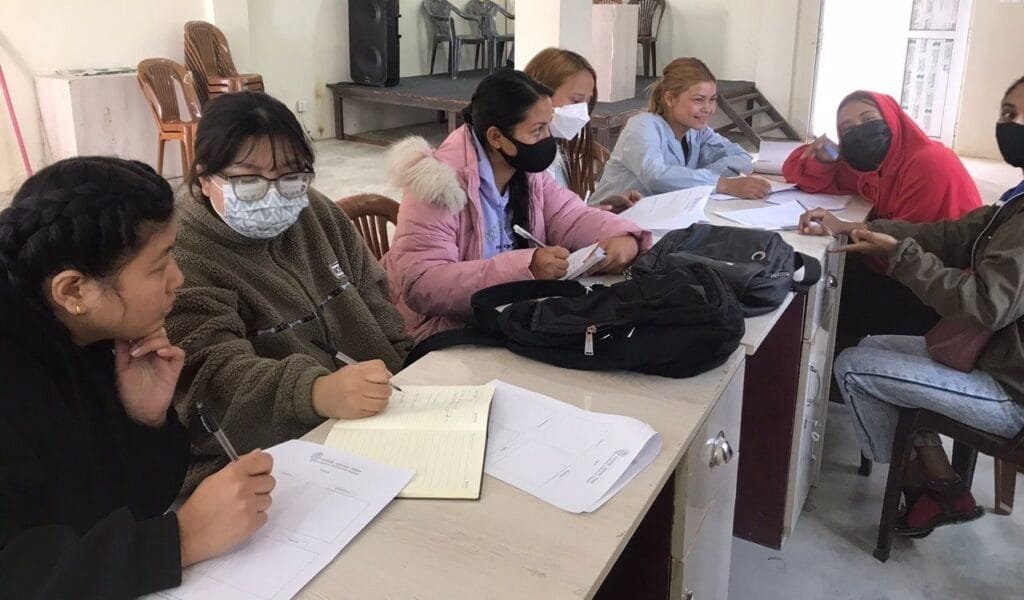Women’s Empowerment Internship Nepal – A Pathway to Gender Equality and Community Transformation
Are you passionate about promoting women’s rights and eager to immerse yourself in one of the world’s most diverse countries? Our women’s empowerment internship program in Nepal offers a unique opportunity to champion initiatives that directly benefit marginalized communities. Whether you’re a social sciences student, a recent graduate exploring career options in development, or a professional seeking meaningful volunteer work, this program provides a way to uplift women, develop leadership skills, and contribute to women’s empowerment efforts in Nepal in tangible ways.
This extensive guide examines the history, roles, and impact of our Women’s Empowerment Internship in Nepal. We also outline daily schedules, skill requirements, volunteer activities, and application procedures. By the end, you’ll have a clear roadmap to start your journey toward empowering Nepali women and see how your support can ignite lasting changes in education, health, and economic opportunities.
1. Project Snapshot / Overview
- Project Name: Women’s Empowerment Internship & Volunteer Program in Nepal
- Tagline: “Empowering Women, Transforming Communities”
This women’s empowerment internship project in Nepal aims to promote women’s social, economic, and legal rights in both rural and urban areas. Interns and volunteers collaborate closely with local partners to address critical issues such as literacy, vocational training, leadership development, and healthcare. Whether you’re interested in a women’s education internship or a women’s leadership internship in Nepal, your involvement will bolster the collective efforts of local communities.
2. Project Description
Introduction
“Women’s Empowerment internships provide students with the opportunity for hands-on application of the research and theories they’ve studied in their classes. For an internship, students volunteer 15 hours per week for a term in a local organization whose work benefits women at VIN’s working communities.”
Our gender equality internship Nepal program merges academic knowledge with practical field experience. It allows participants to transform theoretical understanding into real-world impact. Projects typically involve teaching, advocacy, skill-building workshops, and direct community engagement. As an intern, you may assist with micro-credit groups, language courses, or leadership sessions to boost women’s confidence and economic independence.
Background
Nepal ranks 110 out of 162 countries in the Gender Inequality Index (UNDP, 2022). Persistent societal norms often limit women’s educational and employment opportunities. Child marriages, domestic abuse, and underrepresentation in decision-making remain pressing concerns. Moreover, legislative gaps—including minimal punishments for abuse or restricted inheritance rights—further entrench inequalities.
Amid these challenges, women’s empowerment NGOs in Nepal have emerged as catalysts for social change, focusing on education, legal advocacy, and women’s health. Our women’s empowerment internship program places interns in these NGOs or grassroots collectives, amplifying their reach and impact.
Key Objectives
- Boost Women’s Education and Literacy: Introducing literacy and numeracy classes, we help women break dependency cycles and gain confidence.
- Enhance Economic Independence: Participants foster entrepreneurship among rural women through skill training (tailoring, handicrafts, marketing).
- Cultivate Leadership Skills: Workshops on communication, public speaking, and conflict resolution to develop future female leaders.
- Advocate for Women’s Health: Provide essential health education, from maternal and child care to family planning and iperwomen’s health internship Nepal guidelines.
These goals align with the UN Sustainable Development Goals (particularly SDG 5: Gender Equality), aiming to eliminate discrimination against women by 2030.
3. Why Volunteer for This Project – “Women’s Empowerment Internship Nepal”?
The Need
In many rural Nepali communities, deeply rooted cultural norms restrict women’s mobility and educational prospects. UNICEF estimates that one in three Nepali girls is married before 18. As a result, around half never complete secondary education, limiting their future opportunities and financial independence.
Your efforts in a women’s empowerment internship in Nepal can help shift these dynamics by:
- Demonstrating the value of women’s leadership and education.
- Encouraging families to support daughters’ schooling.
- Raising awareness of laws designed to protect women’s rights.
Global Relevance
Women’s empowerment underpins global stability and growth. Studies suggest that improving female literacy by 1% can increase a country’s economic growth by 0.37%. Participating in a women’s development internship in Nepal allows you to join a global push for female education, health equity, and financial inclusion.
Local Voices
“We used to think sending girls to school wasn’t worth it. But after volunteer teachers showed us the benefits, more families encourage their daughters to study.”
— A mother from a rural village near Kathmandu
“I used to be very shy, but I now run a small tailoring business after the leadership sessions. I even train other women in the community.”
— A participant from a women’s microfinance group
4. Volunteers’ Roles and Responsibilities in the “Women’s Empowerment Internship Nepal”
10 Core Tasks
- Teaching English and Literacy
- Plan and conduct classes for women aged 15–40 to boost their reading, writing, and conversational skills.
- Skill Training Workshops
- Facilitate hands-on lessons like sewing, weaving, or small-scale shop management—key for expanding women’s education internships in Nepal.
- Micro-Credit Support
- Help women’s groups manage savings, distribute micro-loans, and develop micro-business strategies.
- Leadership Development
- Conduct confidence-building sessions, leadership role plays, and public speaking exercises for local female youth clubs.
- Health Awareness and Nutrition
- Collaborate with women’s health internship Nepal staff to educate on reproductive health, maternal care, and child nutrition.
- Women’s Rights Advocacy
- Work with local women’s advocacy internship Nepal projects to disseminate information on legal protections, inheritance rights, and reporting abuse.
- Data Collection & Research
- Gather baseline data on literacy rates, income levels, or health outcomes to guide future interventions.
- Community Engagement
- Coordinate events or outreach sessions, encouraging families and community leaders to support women’s empowerment.
- Monitoring & Evaluation
- Help track project progress using attendance records, skill tests, or business outcomes.
- Mentorship & Guidance
Daily Activities
A typical day might look like:
- 8:30 – 9:15 AM: Breakfast at the volunteer house or homestay
- 9:15 – 10:00 AM: Travel to the project site (rural village or local center)
- 10:00 AM – 1:00 PM: Teach or conduct skill workshops
- 1:00 – 2:00 PM: Lunch break with local staff or volunteer team
- 2:00 – 4:00 PM: Women’s rights advocacy sessions, health awareness talks, or data collection tasks
- 4:00 – 5:00 PM: Return to accommodation
- 5:00 – 7:00 PM: Free time, cultural immersion, or self-study
- 7:00 – 8:00 PM: Dinner
- 8:00 PM Onwards: Reflective journaling, next-day lesson planning, or rest
Special Projects
- Annual Women’s Summit: Organize a day-long event where female entrepreneurs, educators, and activists share experiences.
- Girl’s Club Mentorship: Pair teen girls with local mentors, focusing on career aspirations and academic support.
5. Skills and Requirements
Required Skills
- Essential Communication: Fluent English (Nepali is helpful but not mandatory), plus a willingness to collaborate across language barriers.
- Teaching or Organizational Skills: Experience leading workshops or training can be beneficial.
- Cultural Sensitivity: Adapting to local norms and empathizing with various life experiences.
Eligibility
- Age Minimum: 18+ (some exceptions for older teens with guardian consent).
- Educational Background: Students or professionals in gender studies, social work, education, public health, or related fields—though not strictly required.
- Health Condition: Sufficient stamina for traveling to and from project sites, sometimes on foot or by bus.
Preferred Skills
- Teaching Experience: Classroom or tutoring experience for easier lesson planning.
- Project Management: Leading campaigns or organizing events can accelerate project success.
- Counseling or Mentorship: Empathy and listening aptitudes help in confidence-building sessions.
6. Cultural Experience
Cultural Immersion
Throughout your women’s empowerment internship in Nepal, you’ll engage with local families, attend festivals like Dashain or Tihar, and sample Nepali cuisine (dal bhat, momos, pickles). You might also visit local temples and observe unique rituals, broadening your cross-cultural understanding.
Language Learning
Short Nepali lessons are often provided to facilitate deeper connections with women’s groups. Basic phrases like “Namaste!” and “Dhanyabad (thank you)” can spark instant rapport.
7. Logistics and Support
Accommodation
- Shared Volunteer Houses: Typically near the project location, offering basic but comfortable amenities.
- Homestays: Live with a Nepali family, immersing yourself in local food and daily routines.
- Rural Lodgings: At more remote sites, expect more sparse conditions—pit latrines, well water, and solar power.
Meals
- Nepali Standard Meals: Usually dal Bhat (rice and lentil soup) with vegetables.
- Dietary Preferences: Most hosts accommodate vegetarian or other dietary requests with prior notice.
Transportation
- Airport Pickup: Coordinators greet you at Kathmandu’s international airport.
- Daily Commutes: Local buses or shared jeeps are used primarily for rural placements, with any long walks disclosed ahead of time.
On-Site Support
- Coordinators: Provide orientation, track progress, and resolve issues.
- Local Mentors: Women community leaders or NGO staff guide you in tasks, bridging cultural or language gaps.
- Health and Safety: Advice on vaccinations, recommended attire, and local customs is offered. A 24/7 helpline is typically available for emergencies.
8. Program Fees and Inclusions
For detailed cost structures, see our Program Fees Page. Generally:
- Covered: Accommodation, meals, local staff support, orientation, language lessons.
- Not Covered: International flights, travel insurance, optional tours, personal expenses.
- Additional: Some specialized women’s leadership internships in Nepal or advanced women’s health internships in Nepal modules might entail extra costs.
These fees sustain local logistical support, small stipends for local trainers, and program expansions.
9. Impact and Outcomes
Volunteer Impact
- Personal Growth: You’ll refine leadership, interpersonal skills, and cross-cultural communication—assets valuable in any future career.
- Professional Development: Real-world exposure to gender equality challenges, bridging theoretical knowledge with practical solutions.
- Networking: Access to local women’s networks, government agencies, and women’s empowerment NGOs in Nepal.
Community Impact
- Educational Gains: As an intern, you might help double a woman’s literacy class attendance within months.
- Economic Uplift: Skill training fosters micro-enterprises, such as local handicrafts or small-scale vegetable farms.
- Long-Term Social Change: Normalizing the concept of women’s financial and social autonomy influences younger girls’ aspirations.
“The creation of women’s literacy classes changed our entire village. Now more daughters stay in school, shaping a new generation of confident women.”
— Community Leader
10. Success Stories and Testimonials
Volunteer Experiences
Alisha from Canada
“My women’s development internship in Nepal helped me see the real daily challenges women face. I taught English and life skills, and in return, the women taught me resilience. I left understanding that even small interventions can spark big changes.”
Jason from the UK
“Through my women’s advocacy internship in Nepal, I supported a micro-credit project for young mothers. Four participants had their startups six ms later, boosting their household income. Witnessing such tangible results was incredibly rewarding.”
Local Impact Stories
- Sewing Collective: 15 women started a sewing business after skill training. By the year’s end, they’d produced uniforms for two local schools, generating a steady income for their families.
- Health Awareness Campaign: Volunteers collaborated with a public health clinic to educate 200 women on maternal nutrition and postpartum care. The infant mortality rate dropped notably over the subsequent year.
11. Application Process
Ready to inspire and empower? Follow these steps to join our “Women’s Empowerment Internship Nepal.”
- Complete the Online Application
- Submit Your Resume: Attach your CV plus two professional or academic references.
- Await Confirmation: You’ll receive an email detailing the steps and program specifics.
- Pay the Booking Fee: Secure your spot with a €150 deposit.
- Receive the Pre-Departure Pack: Access culture and language tips recommended packing lists, and day-to-day guidelines.
- Final Payment: Complete the remaining fee upon arrival or via wire transfer.
12. FAQs
- Who can apply for a women’s empowerment internship in Nepal?
Anyone over 18 who is passionate about women’s empowerment, community development, or social work can apply—students, professionals, or career changers. - Are specific qualifications required for a gender equality internship in Nepal?
While no strict academic prerequisites exist, backgrounds in education, social sciences, or development studies are highly beneficial. - What about women’s rights internship Nepal tasks for those without volunteer experience?
We tailor tasks to skill levels, from assisting with literacy classes to facilitating skill workshops or microfinance sessions. - Is Nepali language proficiency necessary?
No. Basic English suffices. Translators or local staff support bridging language gaps, though learning a few Nepali phrases helps. - How do you handle accommodation and meals for a women’s education internship in Nepal?
Our partner or volunteer house typically provides dorm-style rooms, with daily Nepali meals included in the program fee. - What if I’d like to do a women’s leadership internship in a rural location in Nepal?
Our projects include placements in remote areas. Be prepared for more spartan living conditions and a more immersive cultural and community experience. - Is there a women’s health internship in Nepal track for medical or nursing students?
Yes, we align interns with local health posts or women’s health events if they have relevant healthcare training. Additional details are given after acceptance.
Join Us Today to Make a Difference!
Step into a role that merges passion with tangible results. Our women’s empowerment internship Nepal project offers an avenue to challenge social norms, uplift communities, and foster lasting personal growth. Let’s champion women’s empowerment programs in Nepal together, shaping a more equitable future.
- Apply Now
- Contact us : support@vin.org.np | WhatsApp: +977 9851070477
Share this article with like-minded friends and colleagues. Embrace the chance to inspire and empower, forging a path toward inclusive development. Become part of a global network championing women’s empowerment initiatives in Nepal—one woman, one village, one internship at a time.
Gallery




